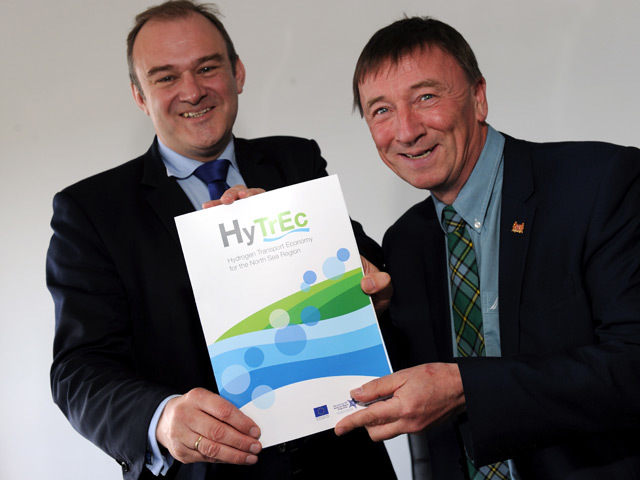
Officials at Aberdeen City Council are seeking European funding for a project to help educate the public on the benefits of hydrogen technology.
The aim would also be to ease any fears that people might have about the safety of hydrogen, which will become widely used in the north-east in the coming years.
The council revealed multimillion-pound plans to create a “hydrogen economy” in the city at the All-Energy conference last week. City council leader Barney Crockett was joined by UK Energy Secretary Ed Davey to promote the strategy, which is designed to help the region diversify.
It has been led by the £20million Aberdeen Hydrogen Bus Project, which will bring Europe’s largest fleet of fuel-cell buses to the north-east next year.
Yasa Ratnayeke, senior partnerships performance and external funding executive at the city council, said the authority, along with eight other partners from across Europe, was now seeking funding for educational purposes.
He said: “This is very much about social acceptance, and how we can bring the public up to speed about what hydrogen is and how safe the different types of technologies are.
“The moment you mention it people can get nervous, but when used in a vehicle, for example, it is safer than using a petrol car.”
The plan is to secure 50% funding from the European Union, about £20,000.
Earlier this year, a joint industry and UK Government report predicted as many as 1.6million hydrogen-powered cars could be on our roads by 2030.
The report also predicted that up to 10% of new-car customers would be receptive to hydrogen fuel cell electric vehicles (FCEV) when they are introduced.
Mr Ratnayeke said major car manufacturers such as Mercedes, Honda and Toyota were already exploring the potential for fuel cell vehicles.
He said a hydrogen-powered car could cover about 550 miles on a full tank, as opposed to an electric-charged car, which would be restricted to about 100 miles.
As part of the Aberdeen bus plan, the city’s first hydrogen refuelling station would be built at a cost of about £2.5million.
Recommended for you
